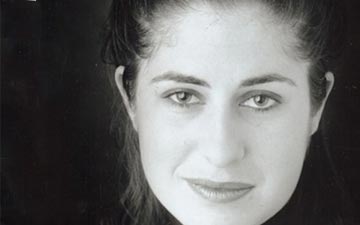Gorkem Acaroglu: making change through the arts
GAYERTREE Subramaniam speaks with Gorken Acaroglu, a Melbourne-based theatre director determined to portray the diversity of the people and culture of Australia through her art.
Australia holds the undisputed title of being a melting pot of diversity. It boasts an array of cultures, people, ethnicities, food, and history incomparable to anywhere else in the world.
But when was the last time you saw this diversity being reflected in mainstream media, let alone the performing arts?
Gorkem Acaroglu is a theatre director, writer and dramaturge who is determined to change this.
Acaroglu is quite the pioneer in the local theatre art scene for her interest in documentary theatre and the use of interactive media, and for this she has recently been awarded for her innovative work in the arts – receiving the 2012 Sidney Myer Creative Fellowship, the Asialink Performing Arts Residency and the Australia Council’s prestigious ArtLab Grant.
These awards all have one thing in common; they are handed out only to artists with a particularly multicultural and boundary pushing focus in their artistic practice.
Provoking thoughts and challenging perceptions are almost second nature to Acaroglu.
The Asialink Residency has paved the way for Acaroglu travel to Mongolia to work with experimental theatre company Black Box theatre. Creating projects that fuse both Eastern and Western cultures through her trademark documentary theatre style will form the major part of her cultural exchange.
“The main thing I’m looking forward to is to learn about the performing arts in Mongolia and to create some work there with local artists about the local issues, documenting people’s perspectives,” she says.
Acaroglu says the works of artists from minority groups are rarely showcased in Melbourne’s predominantly Anglo-Celtic arts scene, and the presenting of awards by government and agencies will help raise the profiles of multicultural artists in Australia.
“Over time there will be a change in the way artists are seen in Australia. It will take a long time and I don’t think it will change immediately, but such initiatives are really important. They open up the minds of mainstream companies and gives them an opportunity to think differently about the culture of mainstream art,” she says.
Often divisive yet significant themes such as multiculturalism, migration and minorities that mainstream media usually shy away from often lie at the centre of Acaroglu’s theatre and film work.
When asked why she feels so passionate about portraying these underrepresented issues in her works, she points to Australia’s struggle to articulate its identity.
“The reality of our nation is that it is 60 per cent culturally intermixed. I see a lot of injustice and unfairness of because we haven’t found that consensus in our identity as Australian, and for me it is about addressing those issues that arise as a result,” she says.
Her Australian Writer’s Guild award-winning production Yet to Ascertain the Nature of the Crime, probed beneath the surface of the racist attacks against Indian students in Melbourne in 2010.
The production reflects the differing opinions held over the volatile and controversial matter, as well as Acaroglu’s mission to make people aware of the labels, stereotypes and twisted information that infiltrates the media.
“People perceive me differently because of my name and my background, which limits their engagement with me,” she says.
“For me, my proudest moments are when I have attempted to make the documentaries that I have, for having tackled the subjects that I have tackled, for I know theatre people are not very interested in such topical, culturally significant issues.”
The desire to alter and shift perceptives and mindsets has been a key driving force in her 14-year career, and she believes the creation and fortification of the Australia’s multicultural identity begins with multicultural representation in mainstream media.
“To be honest, television has an even greater role to play than the performing arts do where it comes to shaping the way we see ourselves. Those from so-called minority backgrounds perceive themselves as being part of the lesser demographic because they hardly see people who look like them on screen,” Acaroglu says.
But she has already begun to see the shift towards a more representative and culturally diverse performing arts scene, in Melbourne especially, whereby a strong multicultural arts community is now regarded as a necessary and crucial component of Australia’s social and cultural fabric.
And to aspiring multicultural artists, Acaroglu offers advice that is both encouraging and sobering.
“People tend to think that the arts are something that add no value to the nation nor the society, that its presence is not a priority. This is untrue,” she says.
“The arts in a way are a calling. If you feel that passionate about doing this thing that is so illogical in terms of money and lifestyle, you can’t battle against it. Be very determined and never give up.
“Learn to deal with rejection early on and not let it hinder your progression. Find a way quickly and early in your career to turn rejection into a positive and charge on. You have to keep making it work.”

